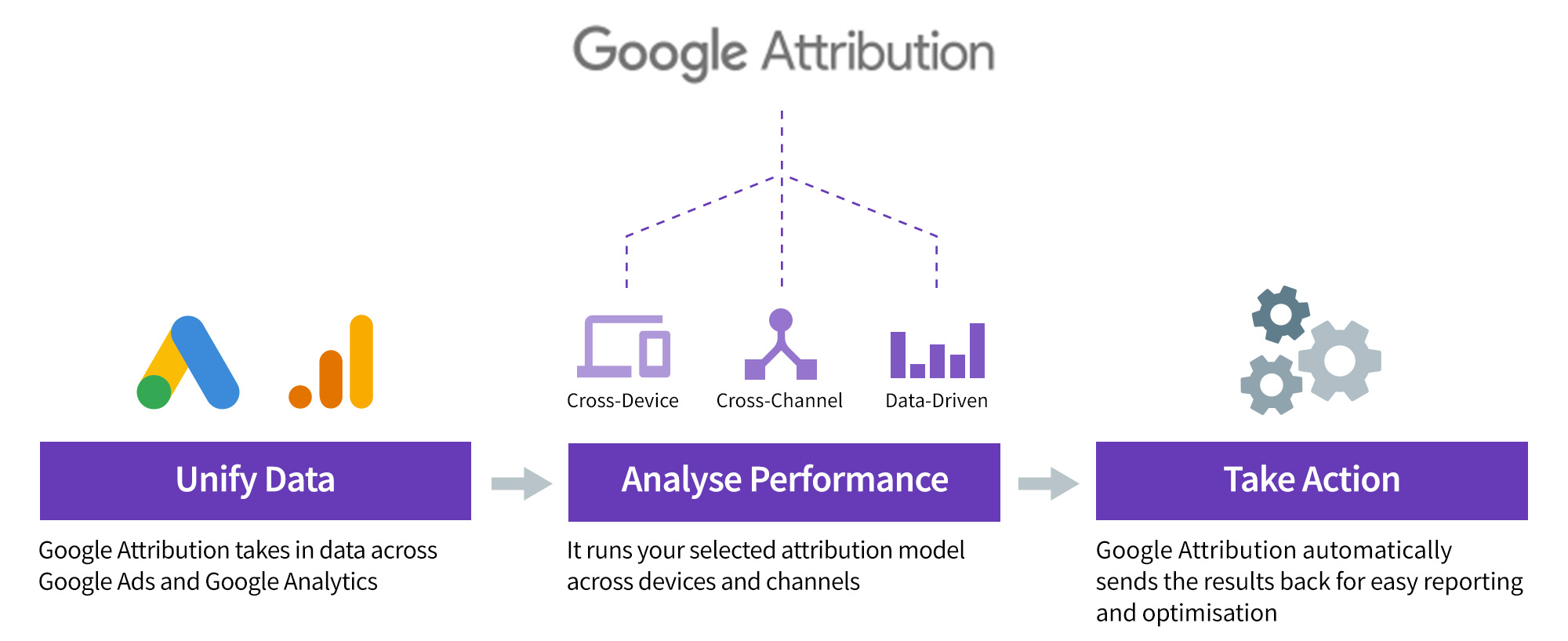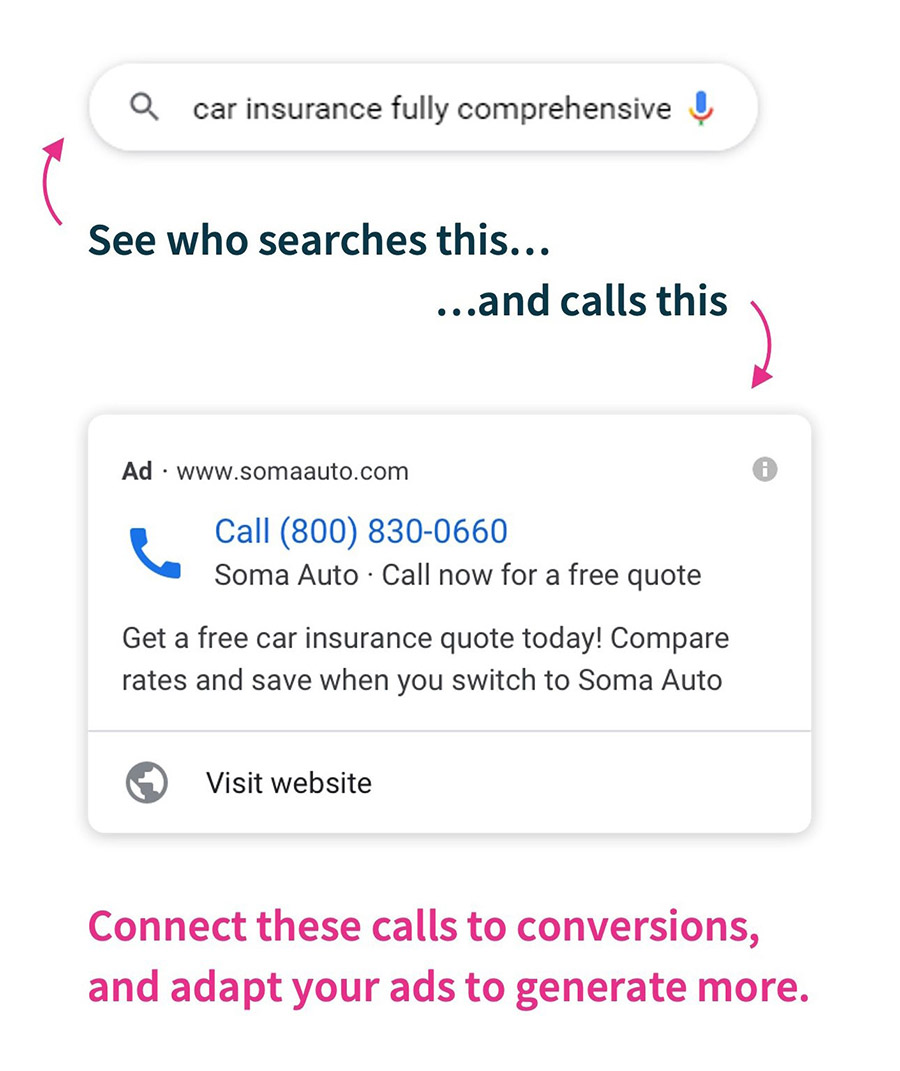As marketing teams seek to be more strategic in how they reach their intended audiences, there are more opportunities than ever to track campaign impact and report on real ROI. But accurate attribution depends on putting the right marketing attribution model and tools in place to support analysis.
Marketing attribution is the process of assigning value to each of your marketing touchpoints. This helps you gain a better understanding of which activities are having the most impact on your bottom-line. With this type of insight at your fingertips, you’re in a better position to optimise your budget and campaigns more effectively.
In this blog, we’ll provide a brief overview of attribution modelling and analysis. Plus, we’ll explore how to use Attribution in Google Analytics to enhance your analysis and cover your customer blind spots, to deliver stronger marketing results and more profit.
What is attribution modelling?
Customers are rarely converted through just one marketing interaction, so if you can identify the most effective touchpoints, you’re presented with an opportunity to convert them faster and cheaper.
Attribution modelling, involves picking one of several marketing attribution models to establish a rule (or a set of rules) that help you understand which touchpoints in your customer journey have the greatest influence on conversion, by assigning value to each.
There are several types of marketing attribution models, including multi-channel models that can offer a more sophisticated overview of the customer journey that encompasses all your channels, but the four simplest models are:
First click or lead creation – This model attributes 100% of the conversion to the first point the customer interacts with, otherwise known as the point of entry.
Last click or opportunity creation – This model attributes 100% of the conversion to the last point the customer interacted with before they converted into a sale.
Linear or equal-weighted – This model attributes the conversion equally to each of the touchpoints the customer interacted with during the acquisition process.
Positional or first and last click weighted – This model attributes the conversion across each of the touchpoints, but upweights toward the first and the last.
What is Attribution in Google Analytics?
Robust attribution reporting relies on feeding as much data as possible into your analysis. Attribution is designed to help you measure the impact of your marketing across all devices and channels, in one place.
It feeds in a wealth of data to simplify multi-channel attribution by integrating data from Google AdWords, Google Analytics, search ads, display ads, organic search, email, affiliates, social and direct visits, all in one place.
This makes it easier to analyse performance by giving you a single view of complex customer journeys, which means you can give your campaigns a boost without spending hours trawling through data.

How do I use Attribution in Google Analytics?
Attribution can support several rules-based attribution models including first click, last click, linear and positional. It can also provide data-driven attribution, which involves distributing credit for the conversion based on the observed data for each conversion type. This model uses your data to create a model that is specific to you and your goals.
Attribution is a free tool available with the Conversion tab of your Google Analytics dashboard, which delivers cross-channel data-driven attribution to all customers. An Attribution project allows you to:
Accurately report conversion totals, de-duplicated across all digital channels.
See a consolidated, consistent view of all digital performance.
Build understanding of your brand’s customer journey
Using Attribution in Google is as simple as linking your Google Ads and Google Analytics accounts and selecting your attribution model and goals. You can find out more about creating an Attribution project here.
How can I use Google Attribution as part of my wider analysis?
While Google offers you a wealth of data to improve your attribution analysis across their suite of tools, but when the customer picks up the phone and takes the conversation offline, you lose sight of which specific touchpoint drove that action.
Infinity allows you to seamlessly integrate call data into the full Google suite, giving you a more complete picture of the customer journey. For example, call tracking can assist with creating better multi-channel marketing attribution by connecting the dots between your online and offline activities.
Using Google and Call Tracking together, you’re able to:
Send goals and phone call data in real-time, along with call type and value.
Record individual calls and goals as events in Google Analytics.
Send revenue and outcomes into Google as Goal Value.
See which keywords work, and which don’t. within your bid management solution.
Identify whether display impressions have contributed to phone calls.
Tailor display budgets confidently, with the knowledge that the ROI is proven.
Thanks to our upgraded Google Ads integration, we’re now able to capture granular insight on the keyword groups, ads and campaigns that trigger calls directly from Search Ads. Which is significant since, according to research, 70% of people browsing on mobile call by tapping the phone numbers in call ads, call extensions and location extensions.
By bringing this data into your attribution report, you get greater visibility on what's leading to conversions along the customer journey so you can make even smarter bidding decisions.

Digital marketing agency Semetrical were able to drive a 26% uplift in calls and increase the likelihood of leads from PPC campaigns by combining Google Analytics and Infinity. They deployed this solution across their clients, helping them see the full digital customer journey across multiple touchpoints, delivering better results for their clients.
Key takeaways
So, let’s review what we’ve learned about Attribution in Google Analytics and how you can use it, alongside call tracking, to optimise your campaigns and deliver more customers.
Attribution modelling helps you understand which touchpoints in your customer journey have the greatest influence on conversion, by assigning value to each.
Attribution in Google integrates data from across their suite of tools including AdWords, Google Analytics, search ads, display ads, organic search, email, affiliates, social and direct visits to simplify multi-channel attribution.
Call Tracking seamlessly integrates call data into the full Google suite, giving you a more complete picture of the customer journey.
Every conversation matters. Start one with us to discover how call tracking can help you optimise your most valuable customer conversations.